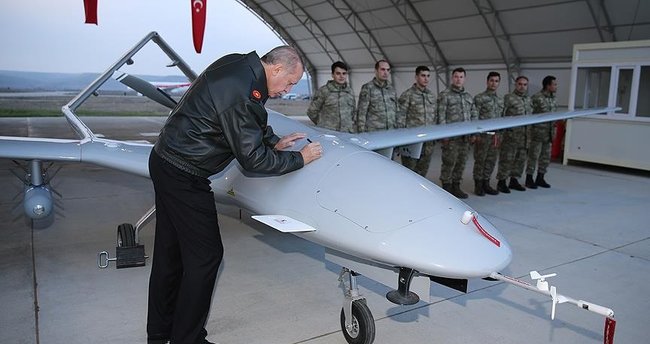Turkey’s Official Gazette appears to contradict claims by the Turkish Presidency of the Defense Industry (SSB), the government’s defense procurement agency, about financial support for Baykar, a defense contractor owned by President Recep Tayyip Erdoğan’s in-laws, the BirGün daily reported on Tuesday.
Despite the SSB’s statement that Baykar, which is run by Erdoğan’s son-in-law Selçuk Bayraktar and his elder brother Haluk Bayraktar, has not received any financial assistance, incentives or grants from the state, records from the Official Gazette dated September 5, 2019 show that the company has in fact received significant state support.
These incentives included exemption from customs duty, VAT exemptions, tax deductions, contributions to Baykar’s investments and substantial support for the employer’s share of insurance premiums as well as income tax exemptions.
A decree signed by President Erdoğan in 2019 also designated nearly 18.2 hectares of land in İstanbul’s Esenyurt and Arnavutköy districts as Special Industrial Zones for Baykar. In March 2023 this was expanded by a further 49.7 hectares near Çorlu Airport in Tekirdağ province.
The SSB’s statement defending Baykar came after Baykar CEO Haluk Bayraktar claimed that İstanbul Mayor Ekrem İmamoğlu’s communications team had orchestrated a smear campaign over the company’s alleged sale of jet fuel to Israel.
Baykar, which is known for manufacturing the TB2 combat drones, came under scrutiny after allegations spread on social media platforms claiming that Baykar was involved in the sale of jet fuel to Israel.
CEO Haluk Bayraktar has strongly denied the allegations and accused İmamoğlu of defamation.
Recent trade restrictions imposed on Israel by Turkey following ongoing military operations in the Gaza Strip affected certain goods, including jet fuel.
On Sunday Evren Barış Yavuz, a political communications expert, was arrested on charges of “spreading misleading information to the public” and “propaganda for a terrorist organization” after he posted a photo of Haluk and Selçuk Bayraktar on social media with the caption “They sold jet fuel.”
What Haluk Bayraktar describes as a plot against Baykar at the behest of İmamoğlu was triggered by Yavuz’s tweet, for which he was arrested.
Yavuz defended himself, stating that he had no connection to the İstanbul Metropolitan Municipality and İmamoğlu and that he did not write a controversial article titled “Why Alevis [a sizable religious minority in Turkey] should have their own PKK [outlawed Kurdistan Workers’ Party]” which Haluk Bayraktar used to attack İmamoğlu.
Allegations against Baykar were particularly controversial as they came at a time when anti-Israel sentiment in Turkey has been running high since Israel began pounding Gaza in retaliation for an unprecedented attack by the militant group Hamas in southern Israel on October 7, which claimed about 1,200 lives and led to the taking of some 250 hostages.
On April 6, 133 hostages were still in captivity in the Gaza Strip, 129 of whom had been abducted on October 7.
According to the Gaza Health Ministry, the death toll in the Gaza Strip has now exceeded 34,200.
In a statement, Haluk Bayraktar defended the integrity of Baykar and criticized the attacks on his company as unfounded and malicious. “Our nation and the people of Gaza know our stance well; these unfounded slanders will not tarnish our reputation,” Bayraktar said. He accused İmamoğlu’s team of using misleading tactics to undermine Baykar’s contribution to Turkey’s defense capabilities.
The SSB’s defense of Baykar is noteworthy because the organization has traditionally overseen and supported the development of Turkey’s defense sector rather than defending individual companies, particularly those that are privately owned.
The move has been seen by many as a sign of how the Turkish state is being hollowed out by Erdoğan-friendly bureaucrats who are dropping any pretense of neutrality to defend a company owned by Erdoğan’s in-laws.
Critics allege that Baykar has been given preferential treatment in defense tenders at the expense of state-owned competitors such as Turkish Aerospace Industries (TAI), amid broader accusations of nepotism and cronyism in Turkey’s defense industry.
